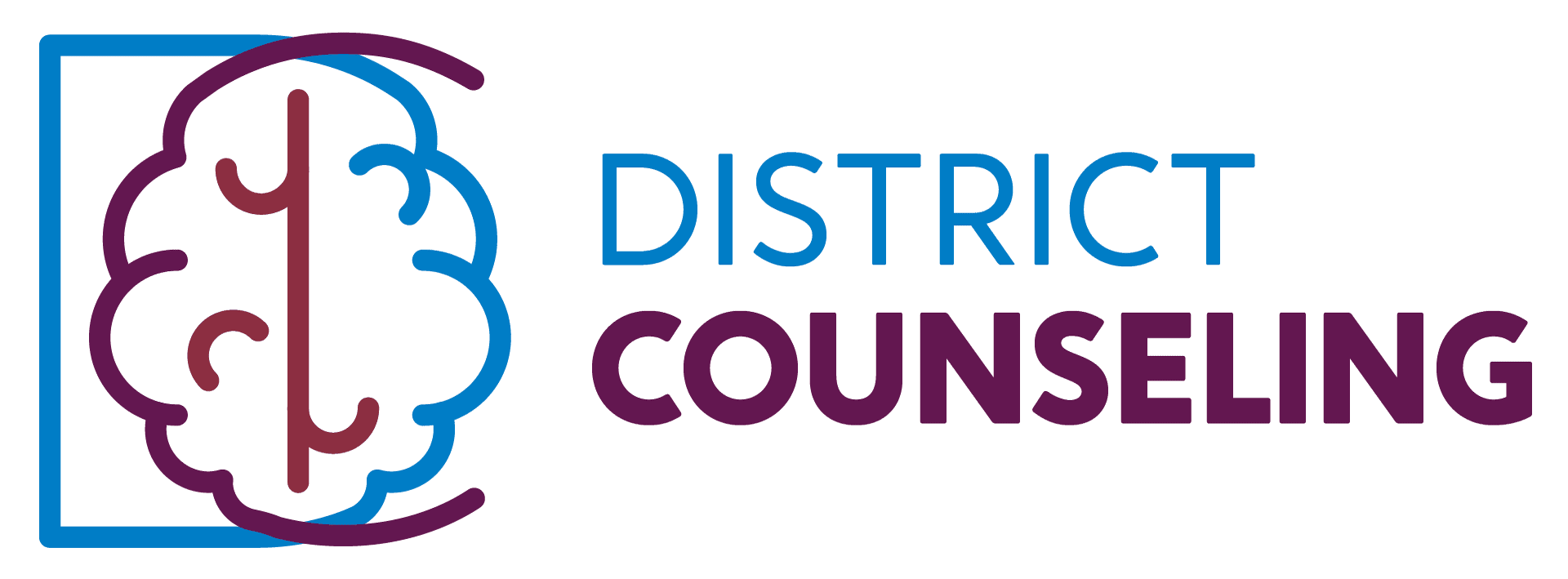Share Post
Weight gain can feel like an uphill battle, especially when it’s connected to mental health challenges or psychiatric medications. If you’ve experienced unexplained weight changes alongside depression, anxiety, or other mental health conditions, you’re not alone. The connection between mental wellness and weight management runs deeper than many realize, and traditional weight loss approaches often fall short when psychiatric factors are involved.
This is where specialized psychiatric weight loss programs in Houston step in, offering a targeted approach that addresses both the psychological and physical aspects of weight management. These comprehensive programs recognize that sustainable weight loss requires more than diet and exercise when mental health conditions or psychiatric medications are part of the equation.
The Hidden Connection Between Mental Health and Weight
Mental health conditions create a complex web of factors that can lead to weight gain. Depression often brings changes in appetite, sleep patterns, and motivation levels. Anxiety can trigger emotional eating or disrupt normal eating schedules. Conditions like PTSD may cause individuals to seek comfort in food as a coping mechanism.
Beyond the psychological factors, psychiatric medications frequently contribute to weight changes. Antipsychotics, mood stabilizers, and some antidepressants can alter metabolism, increase appetite, or change how the body processes glucose. Studies show that individuals taking certain psychiatric medications may gain 10-30 pounds within the first year of treatment.
This weight gain isn’t simply a cosmetic concern. It can lead to diabetes, cardiovascular disease, and other serious health complications. More importantly, it often creates a cycle where physical health concerns worsen mental health symptoms, leading to medication adjustments that may cause further weight gain.
Understanding Psychiatric Weight Loss Programs
Psychiatric weight loss programs in Texas differ significantly from traditional weight management approaches. While conventional programs focus primarily on calorie restriction and exercise, psychiatric weight loss programs take a holistic view that considers:
- The impact of mental health conditions on eating behaviors
- How psychiatric medications affect metabolism and appetite
- The psychological barriers to sustainable weight loss
- The need for coordinated care between mental health and medical professionals
These programs combine psychiatric expertise with cutting-edge metabolic treatments to create personalized solutions. They recognize that successful weight management requires addressing the root causes, not just the symptoms.
The Science Behind GLP-1 Medications for Weight Loss
One of the most significant advances in psychiatric weight loss programs is the use of GLP-1 (glucagon-like peptide-1) medications. These medications work by mimicking a hormone naturally produced in the intestines that helps regulate blood sugar and appetite.
GLP-1 medications offer several benefits for individuals struggling with psychiatric-related weight gain:
Appetite Regulation: These medications slow gastric emptying and promote feelings of fullness, helping combat the increased appetite often caused by psychiatric medications.
Blood Sugar Control: By improving glucose regulation, GLP-1 medications can help prevent the metabolic complications associated with antipsychotic medications.
Sustainable Weight Loss: Clinical studies show that GLP-1 medications can lead to significant, sustained weight loss when combined with lifestyle modifications.
Reduced Food Cravings: Many patients report decreased cravings for high-calorie foods, making it easier to maintain healthier eating patterns.
Expert Care: The Amy Azih Approach
Amy Azih, PA-C, CAQ, brings over 12 years of experience as a Psychiatric Physician Assistant to the field of psychiatric weight loss. Her unique background positions her perfectly to understand the complex relationship between mental health and weight management.
Amy’s approach centers on compassionate, evidence-based care that empowers patients throughout their weight loss journey. She recognizes that individuals dealing with psychiatric-related weight gain face unique challenges that require specialized understanding and support.
Her integrated approach combines:
- Thorough evaluation of mental health factors contributing to weight gain
- Personalized medication management using the latest evidence-based treatments
- Ongoing support and monitoring throughout the weight loss process
- Coordination with other healthcare providers to ensure comprehensive care
Who Benefits from Psychiatric Weight Loss Programs in Texas?
Our psychiatric weight loss program in Houston is specifically designed for individuals whose weight challenges are connected to mental health factors. This includes people dealing with:
Mental Health Conditions:
- Depression and persistent mood disorders
- Anxiety disorders and panic conditions
- Bipolar disorder and mood stabilizer-related weight gain
- PTSD and trauma-related eating behaviors
- Seasonal affective disorder
- Eating disorders in recovery
Medication-Induced Weight Gain:
- Antipsychotic medications (both typical and atypical)
- Mood stabilizers like lithium and valproate
- Certain antidepressants, particularly tricyclics and some SSRIs
- Anti-anxiety medications used long-term
- Combination psychiatric medications
Complex Cases:
- Individuals who have tried traditional weight loss methods without success
- Those experiencing weight gain despite lifestyle modifications
- People whose weight changes coincided with starting psychiatric treatment
- Individuals dealing with both mental health conditions and metabolic disorders
A Comprehensive Treatment Approach
Effective psychiatric weight loss programs go beyond simply prescribing medications. They offer a multi-faceted approach that addresses all aspects of weight management:
Psychiatric Evaluation and Ongoing Care
The foundation of any psychiatric weight loss program is a thorough evaluation of mental health factors. This includes assessing current medications, understanding the timeline of weight changes, and identifying psychological barriers to weight loss.
Ongoing psychiatric care ensures that mental health remains stable throughout the weight loss process. This is crucial because rapid weight changes can sometimes affect mood and anxiety levels.
Medical Weight Management
GLP-1 medications form the cornerstone of medical weight management in these programs. However, the approach goes beyond simply prescribing medication. It includes:
- Careful medication selection based on individual needs and medical history
- Regular monitoring for side effects and effectiveness
- Dosage adjustments to optimize results while minimizing adverse effects
- Integration with existing psychiatric medications to avoid interactions
Nutritional Guidance
Understanding nutrition becomes more complex when psychiatric factors are involved. Programs provide specialized guidance that considers:
- How psychiatric medications may affect appetite and cravings
- Strategies for managing emotional eating
- Meal planning that supports both mental health and weight loss goals
- Education about foods that may interact with psychiatric medications
Lifestyle Support
Sustainable weight loss requires lifestyle changes that are realistic and maintainable for individuals dealing with mental health challenges. This includes:
- Exercise recommendations that account for energy levels and motivation fluctuations
- Sleep hygiene strategies, as poor sleep can sabotage weight loss efforts
- Stress management techniques to prevent emotional eating
- Building healthy routines that support both mental health and weight management
What to Expect: The Journey Ahead
Starting a psychiatric weight loss program represents a commitment to comprehensive health improvement. Here’s what patients can typically expect:
Initial Consultation: A thorough evaluation that includes medical history, current medications, mental health assessment, and weight loss goals.
Personalized Treatment Plan: Development of a customized approach that considers individual needs, preferences, and circumstances.
Regular Monitoring: Ongoing appointments to track progress, adjust medications, and address any concerns or side effects.
Gradual Progress: Sustainable weight loss typically occurs at a rate of 1-2 pounds per week, with many patients seeing significant results within the first few months.
Lifestyle Integration: Ongoing support to help integrate healthy habits that support long-term success.
Mental Health Stability: Continuous monitoring to ensure that weight loss efforts don’t negatively impact mental health.
The Importance of Specialized Care
Attempting to address psychiatric-related weight gain without specialized care can be frustrating and potentially harmful. Traditional weight loss programs may not account for the unique challenges faced by individuals with mental health conditions. Similarly, general medical weight loss programs may not understand how psychiatric medications interact with weight loss treatments.
Psychiatric weight loss programs bridge this gap by providing care that is both medically sophisticated and psychiatrically informed. This specialized approach increases the likelihood of success while maintaining safety and mental health stability.
Success Stories and Realistic Expectations
While individual results vary, many patients in psychiatric weight loss programs experience significant improvements in both weight and overall health. Success is measured not just in pounds lost, but in improved energy levels, better mood stability, reduced medication side effects, and enhanced quality of life.
It’s important to maintain realistic expectations. Weight loss in the context of psychiatric care may be slower than with traditional programs, but it’s often more sustainable because it addresses underlying factors that contribute to weight gain.
Take Action: Your Path to Better Health
If you’ve been struggling with weight gain related to mental health conditions or psychiatric medications, specialized care can make a transformative difference. Psychiatric weight loss programs offer hope for individuals who have felt stuck in cycles of weight gain and unsuccessful diet attempts.
The journey toward better health begins with recognizing that your weight challenges may require specialized understanding and treatment. By working with professionals who understand the complex relationship between mental health and weight management, you can develop a sustainable path forward.
Ready to take the first step? Contact District Counseling today at (346) 800-7601 to schedule a consultation and learn more about how their Psychiatric Weight Loss Program in Texas can support your journey toward improved health and well-being. With multiple locations throughout Texas, including Houston, Austin, and Fort Worth, specialized care is accessible and waiting to help you break free from the cycle of psychiatric-related weight gain.
Don’t let weight challenges continue to impact your mental health and quality of life. The combination of expert psychiatric care, innovative medications, and comprehensive support can help you achieve the sustainable weight loss you’ve been seeking. Take that crucial first step today.

Arely Ambriz
November 24, 2025
The Gavel Falls on a New Week: How to Lead Your Own New Beginning
Start your week with intention. Learn how to set goals, build a strong support system, and find professional mental health resources like psychiatry and counseling in Texas to navigate life’s...

Arely Ambriz
November 21, 2025
Beyond the Twinkling Lights: Is Your Work-Life Balance Up for Sale?
In Riverside, California, a beloved tradition is set to illuminate the city this weekend. The Mission Inn’s Festival of Lights, an event that draws tens of thousands, will switch on...

Development Funnel Boost Media
November 20, 2025
10 Signs You’re Emotionally Exhausted (and What to Do About It)
Emotional exhaustion can creep up slowly — or hit all at once. You might still be functioning, going to work, taking care of your responsibilities, checking things off your list…...

Arely Ambriz
November 20, 2025
Beyond the Buzz: Can Our Relationships Survive the AI Revolution?
Explore how AI impacts relationships, communication, and connection in an automated world. Learn practical tips for nurturing bonds at home, work, and with your children....

Arely Ambriz
November 19, 2025
Can’t Look Away? Your Mid-Week Guide to Managing Headline Stress
Feeling anxious and overwhelmed by the news? Learn why the mid-week news cycle feels so draining and discover practical tips to stay informed without sacrificing your mental health....

Arely Ambriz
November 18, 2025
The Hidden Ledger: Balancing Ambition and Burnout on National Entrepreneur’s Day
Feeling the “founder mindset” leading to burnout? Discover actionable steps, like our “Energy Audit,” to reclaim your mental health and achieve a healthier work-life balance....

Arely Ambriz
November 17, 2025
Beyond the Signal: Charting Your Own Path to a New Beginning
Feeling disconnected? Learn how to build your inner infrastructure for a new beginning. Discover actionable steps and the importance of professional support for mental health, including therapy and psychiatry in...

Arely Ambriz
November 14, 2025
Houston, We Have a Weekend: Navigating Your Final Descent into Work-Life Balance
Discover how global crises impact your well-being and learn practical grounding techniques like 5-4-3-2-1 to manage anxiety and compassion fatigue in a fast-paced world....

Arely Ambriz
November 13, 2025
Beyond ‘Please’ and ‘Thank You’: How World Kindness Day Reveals the Secret to a Stronger Relationship
Discover how global crises impact your well-being and learn practical grounding techniques like 5-4-3-2-1 to manage anxiety and compassion fatigue in a fast-paced world....

Arely Ambriz
November 12, 2025
Finding Your Footing When the World Feels Heavy
Discover how global crises impact your well-being and learn practical grounding techniques like 5-4-3-2-1 to manage anxiety and compassion fatigue in a fast-paced world....
